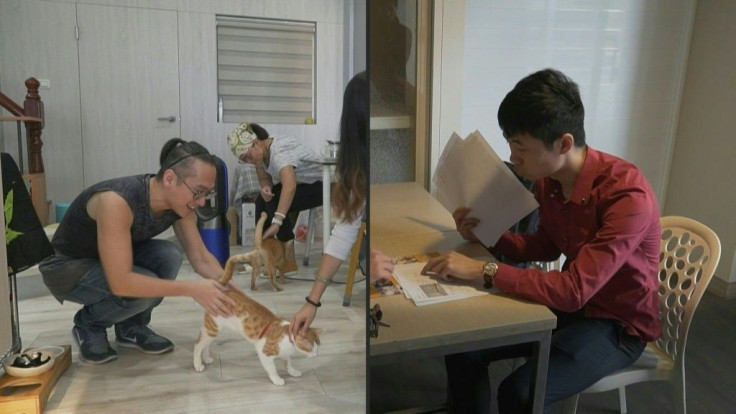Hong Kong Protests: Taiwan Worried China Will Treat Taipei Like The Strife-Torn Region

KEY POINTS
- Taiwan’s Foreign Minister Joseph Wu said that his country is on the side of Hong Kong citizens who are fighting for “freedom and democracy”
- Taiwan views the situation in Hong Kong as a precursor to how China will treat Taiwan.
- Beijing looks at both Hong Kong and Taiwan as Special Administrative Regions with the predetermined fate of being re-united with China
Taiwan’s Foreign Minister Joseph Wu said Tuesday that his country is on the side of Hong Kong citizens who are fighting for “freedom and democracy” in the former British colony. He went on to tell the Associated Press (AP) that he would help those displaced if China uses greater force to quiet the protests.
The “greater force” Wu is referring to are the paramilitary forces that China has deployed to the city of Shenzhen just outside Hong Kong or the garrison of the People’s Liberation Army (PLA) already in Hong Kong but not yet involved in the unrest. Wu stressed that Taiwan has no interest to intervene in the internal affairs of Hong Kong.
Currently, only a small number of people, mostly students, are seeking refuge in Taiwan but that number would change if China uses what Wu calls “disproportionate force” against the protesters.
Taiwan views the situation in Hong Kong as a precursor to how China will treat Taiwan. Beijing looks at both Hong Kong and Taiwan as Special Administrative Regions (SARs) with the predetermined fate of being re-united with China. The difference is that Hong Kong was ceded to China by Britain in 1997 with an agreement that it is fully returned to China in 2047. Taiwan does not have any such agreement meaning that any takeover by China would likely involve the use of force.
The Chinese Communist Party insists that Taiwan is part of China. In 1949, Chiang Kai-shek’s Nationalists, who once ruled on the mainland, escaped to the island after the victorious Communists took power of the mainland in the Chinese Civil War. Beijing has hinted that reunification could take place under the “one country, two systems” model that is in place in Hong Kong.
Wu responded to that saying, “The people here understand how the Chinese government treats Hong Kong is going to be the future way of them treating Taiwan. And what turned out in Hong Kong is not very appealing to the Taiwanese people.”
The Foreign Minister’s comments were made about a month before the Jan. 11 elections in Taiwan. Taiwan’s President Tsai Ing-wen, who also rejects any claims by the Chinese on Taiwan, is poised to win another term over her rival Han Kuo-yu of the Nationalist Party who is more agreeable to Beijing’s way of thinking.
According to recent government surveys, about 80% of Taiwanese citizens oppose reunification. The president has appealed to this sentiment saying the “one country, two systems” model has failed in Hong Kong and brought the city to “the brink of disorder.” Tsai took office is 2016 and has faced the wrath of China for her refusal to accept Beijing’s claims.
Taiwan also has concerns about being a bargaining chip between the U.S. and Beijing in the trade war between the two superpowers. The Trump administration has increased support for Taiwan and agreed to sell 66 F-16 fighter jets worth $8 billion, much to China's chagrin. According to Wu, senior Trump administration officials have assured Taiwan that the relationship between the two is “independent with any other country” and that “Taiwan is a very important partner.”
Wu, perhaps seeking to strike a balance, also said, “If President Tsai is reelected, we’ll continue to ... send out goodwill gestures to China. We want to make sure that the Chinese have no excuse in launching a war against Taiwan.”
© Copyright IBTimes 2024. All rights reserved.





















